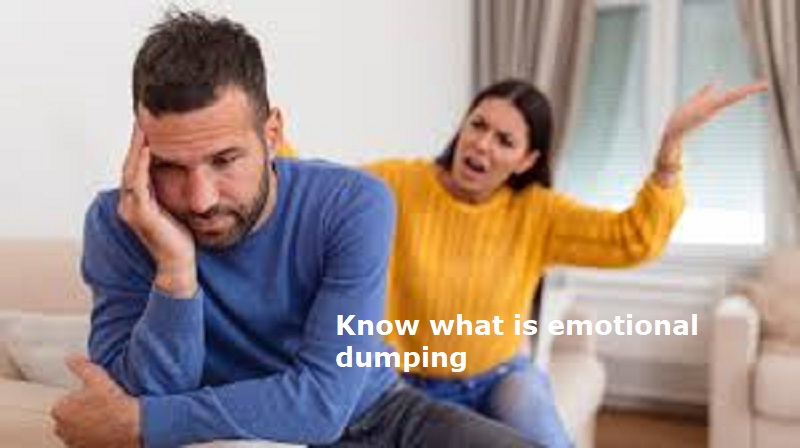
As per experts, emotional dumping is an act of unconsciously sharing your feelings or perspective without an awareness of the other person and their emotional state or needs. Someone who engages in emotional dumping plays the victim and is usually defensive when given advice.
Also Read: Simple Ways for Men to Improve Sexual Performance
Emotional dumping typically occurs as a heightened reactive response to a triggering event that is relived and repeated within a conversation. There is no open feedback, no desire for a solution, and most often, a one-sided conversation. ‘Emotional dumping typically ignores the boundaries of others because it doesn’t reflect on whether the information being shared is relevant, helpful, or even accurate – instead, it’s an unhealthy coping mechanism that people use to deal with stress during a triggering situation. ?Because it lacks awareness of how the other person is impacted, emotional dumping can lead to a false sense of intimacy; this is heightened if there is defensiveness from the speaker (e.g., oversharing or going on and on about how something isn’t their fault),’ says Therapist Sadaf Siddiqi.
Signs of Emotional Dumping: You feel spent, used, unappreciated, or stressed after a conversation with a friend or loved one. A friend or loved one call or texts you repeatedly and at all hours with their problems with no regard for your time. You feel like your conversations are always one-sided. You feel like your friend or loved one does not listen to you or take your advice. Your feelings are ignored despite being communicated. You feel more like a therapist than a friend or member of the family. Your conversations feel toxic and weigh heavily on your mind.

Post Your Comments